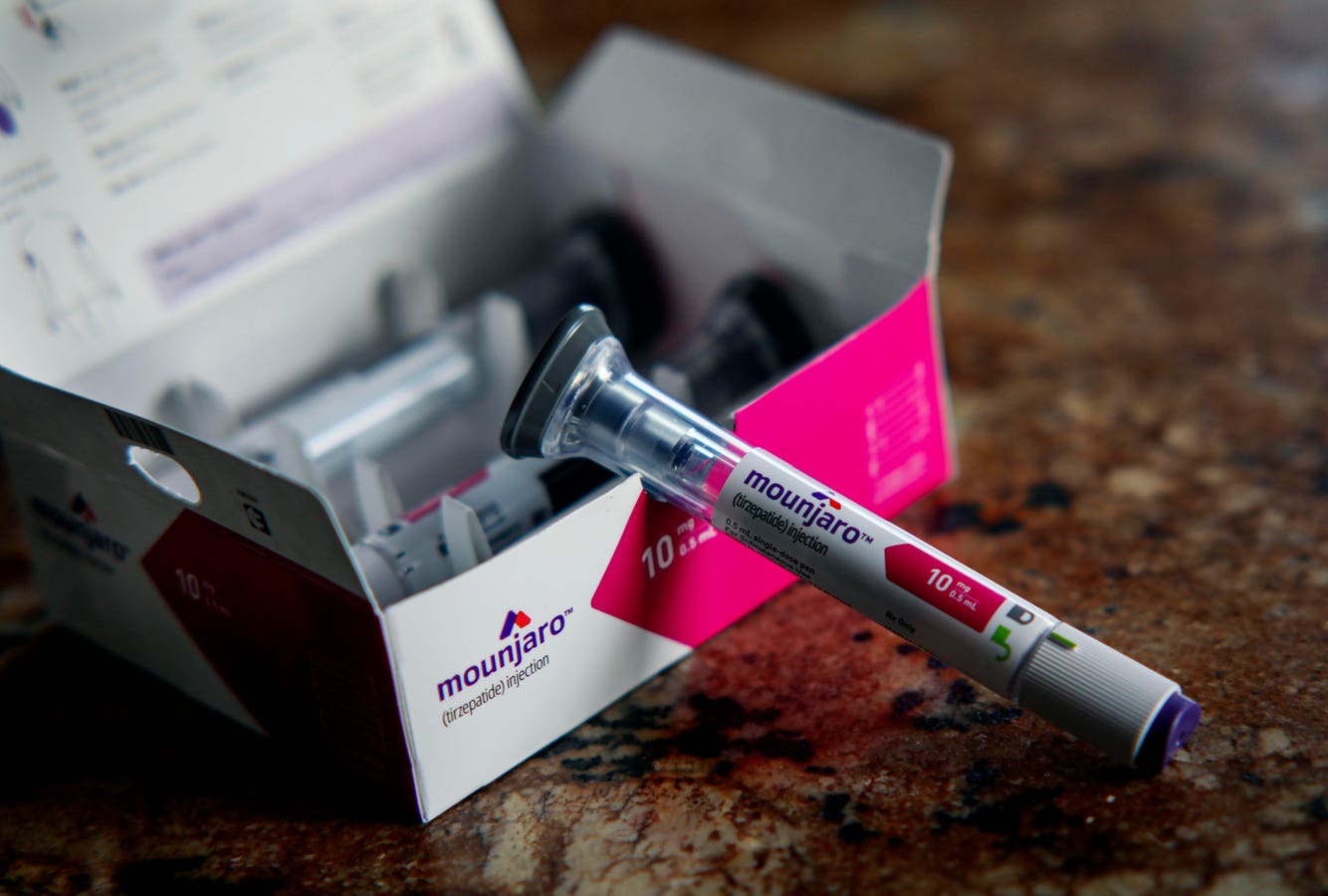The FDA recently approved Zepbound, a weekly injectable drug targeted to treat obesity. The medication contains tirzepatide, the same active ingredient that is also present in the diabetes drug Mounjaro.
People with obesity who took the highest dose of the drug lost 21 percent of their total body weight, according to a randomized-controlled trial published in the New England Journal of Medicine. This could be welcoming news for the one billion people around the world struggling with this condition, not to mention the 100 million Americans affected by it, according to CDC data.
The newly approved drug works by mimicking two naturally occurring hormones in the body, glucagon-like peptide-1 (GLP-1) and glucose-dependent insulinotropic polypeptide (GIP). GLP-1 stimulates the pancreas to reduce blood sugar levels, decreasing emptying of the stomach so people feel full longer and also works on hunger centers in the brain to prevent cravings. GIP works in the brain to decrease appetite.
Although effective in causing weight loss for patients, the medication does have side effects. Common side effects are similar to other GLP-1 drugs like Ozempic and include nausea, vomiting, diarrhea and constipation. Less common but more serious side effects include inflammation of the pancreas, gallbladder issues, changes in vision, kidney problems, depression, thoughts of suicide and a chance of developing thyroid tumors.
Obesity is a chronic medical condition that usually requires a multifaceted approach for treatment. This includes but is not limited to lifestyle modifications with diet and exercise, as well as supportive therapy and medications when appropriate. New classes of drugs like Wegovy (a GLP-1 agonist similar to Ozempic) and Zepbound could certainly help the millions of obese Americans and people around the globe struggling to shed weight.
The FDA approval of Zepbound could also have some unintended consequences for public health. The enormous popularity and demand of weight loss drugs in America opens the door for compounding, which is the process of mixing or altering the ingredients of a drug. This precisely occurred with the surge and popularity of Ozempic, a GLP-1 FDA approved drug for diabetes but often prescribed for its off-label use of weight loss. The FDA received reports that compounders used salts forms of Ozempic which were not shown to be safe and effective. The more demand there is for weight loss drugs, the more the possibility exists for compounded versions of various drugs. Time will tell if compounding will be a concern for Zepbound.
Another unintended consequence may be Americans using Zepbound for short-term weight loss, as opposed to its intended use for long-term weight control. With Ozempic, many celebrities and Americans touted the use of Ozempic for short-term weight loss. However, most weight loss drugs are meant to be used for the long term, as obesity is a chronic medical condition. Furthermore, in the case of Ozempic, many people can gain the weight that they lost back if they use it only for the short term. Only time will tell if patients will begin to use Zepbound to shed pounds for the short term as oppose to using it regularly to treat obesity for the long run.
The list price for Zepbound will be over $1,000, but it is still unclear whether insurance companies will cover the drug entirely or partially for obesity.
Despite prices and unintended consequences, Zepbound provides the public with another drug that could help combat the obesity epidemic in America and globally.
Read the full article here





